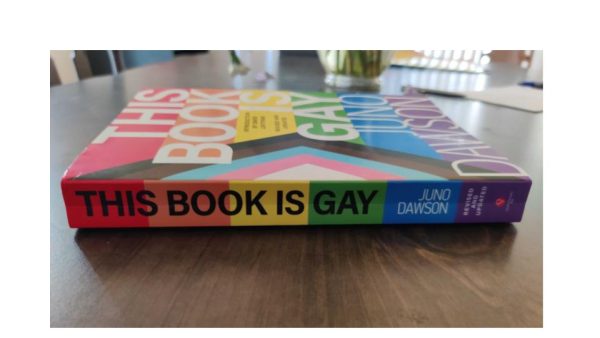Book banning and burning has been a major dystopian concept in American literature, seen primarily as the subject and plot of Ray Bradbury’s Fahrenheit 451, where the idea of books themselves were forbidden. In Bradbury’s distant future, free thinking is abolished and firefighters are sent out to burn away books and remove any revolutionary thought.
Literature has begun to meet reality with a 2023 law, named House Bill 1069, signed by Florida Governor Ron DeSantis, a bill that removes any books in schools that contain sexually explicit content. Various famous titles like Aldous Huxley’s Brave New World and Anne Frank’s revealing Diary of a Young Girl have been targeted and removed in the Florida school system. Stephen King, storied horror writer, has had 23 titles banned, according to a statement on X. JaxToday reports 3,362 individual books being disallowed in the past school year in Florida. House Bill 1069 is an extreme violation of freedom of expression, speech, and ideas, and is incompatible with every value the “American Dream” holds.
Governor DeSantis, a politician extremely vocal against such ideas like LGBTQ+ freedom and critical race theory and its teachings, has based his passing of this bill on his continual pursuit of suppressing these progressive topics. The banning of “sexually explicit content” is a ticket to directly suppressing LGBTQ+ voices and other communities who look to be open about their sexuality.
A viewing of the American Library Association’s statistics on book bans in 2022 allows viewers to see transparently which books were challenged and why. Out of the top thirteen books that were challenged by libraries, schools, and universities, six titles have LGBTQ+ content within them. It’s an underlying theme that nearly half of the novels in the top banned books have content of these communities, including a novel titled simply This Book is Gay. According to NewsWeek, people who have read into the House Bill “view the law as an attempt to stifle discussion about issues including race and the LGBTQ+ community in public schools, raising concerns that this law may censor many topics.” It’s clear the bill already has been working to effectively redact such topics.

Juno Dawson’s multi-challenged This Book is Gay
Alongside clear and blatant intentional censorship, the House Bill itself is flawed. Publisher Penguin Random House’s vice president Dan Novack has described the law as having “complex and overbroad provisions.” The broad concept of “sexually explicit content” can cover various bases, such as a sheer mention of sex or sexual orientation. Such concepts, like innocent exploration, such as mentioned within The Diary of a Young Girl, are taken away from younger, curious readers. Anne Frank’s chilling and extremely bare-bones testament accounts a fascination with human breasts, a topic that could be “sexually explicit.”
Just like that, a raw and unfiltered, an extremely important piece of work has been removed from shelves, due to one small passage. It’s clear to see that the few mentions of such ideas ripping an entire book away from Florida students was intentional, and was set in stone to disallow younger readers to sympathize with their own sexual curiosity, no matter how small these interests are.
The Florida bill is not the only piece of legislation in America launching this nation into a familiar Bradbury-like setting. A similar sexual content ban in schools has taken place in Iowa, and thirteen books have been banned for “obscenity” in Utah. Overall, it is all clearly a violation of First Amendment freedoms and should be fought back against. It is a borderline offense how these states and their school systems are being adapted to take away extremely important literary history from their students and citizens. Students from unaffected states should go to advocate for the violated students in other states and attempt to call for action against such an infringement of freedom of readers choosing what they want to read.

